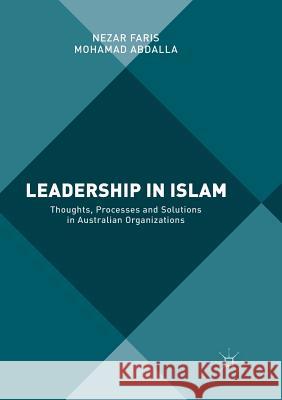Leadership in Islam: Thoughts, Processes and Solutions in Australian Organizations » książka
topmenu
Leadership in Islam: Thoughts, Processes and Solutions in Australian Organizations
ISBN-13: 9783319882451 / Angielski / Miękka / 2019 / 207 str.
Kategorie:
Kategorie BISAC:
Wydawca:
Palgrave MacMillan
Język:
Angielski
ISBN-13:
9783319882451
Rok wydania:
2019
Wydanie:
Softcover Repri
Ilość stron:
207
Waga:
0.27 kg
Wymiary:
21.01 x 14.81 x 1.17
Oprawa:
Miękka
Wolumenów:
01
Dodatkowe informacje:
Wydanie ilustrowane











